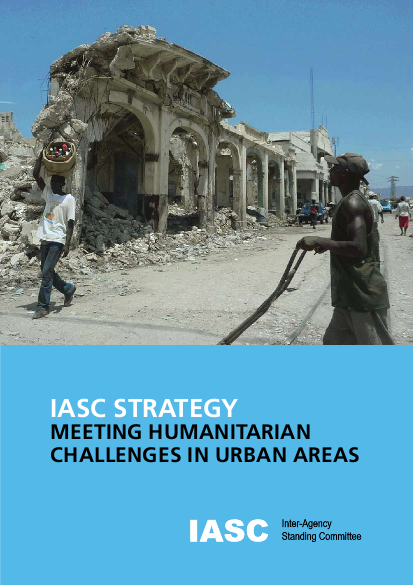
The aim of this IASC Strategy is to recommend actions which humanitarian actors can take to make their responses to humanitarian crises in urban areas more effective and thereby save more lives and accelerate early recovery. Six strategic objectives and supporting actions are proposed which will enhance their expertise and operational capacities in urban areas. This Strategy further addresses and prioritizes the humanitarian challenges identified in the Initial IASC Strategy for Meeting Humanitarian Challenges in Urban Areas of 2009.1 This Strategy includes a recommended Two- Year Action Plan of priority actions to be implemented by IASC agencies and other interested partners. This Strategy and its Action Plan proposes that individual IASC agencies will choose those actions to implement which are of highest priority to their operations and to self-monitor their progress. Progress under the Strategy and Action Plan should be reviewed by the IASC Working Group after two years to determine follow-on steps.
Resource collections
- UN Habitat - Urban Response Collection
- Urban Response - Urban Crisis Preparedness and Risk Reduction
- Urban Response Collection - Community Engagement and Social Cohesion
- Urban Response Collection - Economic Recovery
- Urban Response Collection - Environment and Climate Change
- Urban Response Collection - Housing, Land and Property
- Urban Response Collection - Urban Crisis Response, Recovery and Reconstruction
- Urban Response Collection - Urban Resilience